
A New Year Armoury of Reading
27.12.18
Armed with optimism Mark Perryman makes a selection of the books he'll be depending on in 2019's battle of ideas
Not much doubt which argument will rage on long after any Christmastime peace and goodwill has disappeared, Brexit. Fintan O’Toole’s Heroic Failure is an account of this most dismal of sagas which locates its gestation in a mix of imperial delusion and cultural confusion rather than this deal, that deal or no deal. On a similar front England’s Discontents by Mike Wayne is an exploration of English national identity that provides a highly effective insight towards understanding the politucal terrain of post-Brexit Britain. Any such process will revolve around competing definitions of ‘control’ and precisely who, or what, we need to take it back from. Gianpaolo Baiocchi’s We, The Sovereign describes models of sovereignty that retain both an egalitarian impulse and the power to transform. Most on the Left would regard staying in the EU as a necessity towards any such ambition but that doesn’t mean the arguments in the new book The Left Case against the EU from Costas Lapavitsas should be discounted either. Leave? Remain? The key surely is Change.
Whether or not Labour can come out the other side of the seasonal break from Brexit starting to look more and more like the next Government will be the crucial question of early 2019. Jeremy Corbyn and the Strange Rebirth of Labour England by Francis Beckett and Mark Seddon revisits the roots of Corbyn’s rise to provide readers with credible optimism towards that end. Matt Bolton first wrote up his critique of Corbynism as a blog, describing it as possessing a ‘terrifying hubris’. Harsh but his was a critical accont that was decidedly well thought-out and deserving of a considered read. Now Matt, with co-thinker Frederick Harry Pitts, has turned their shared line line of argument into a book Corbynism : A Critical Approach. I wasn’t convinced by their answers but there are some very good questions raised, too good to simply be dismissed out of hand.
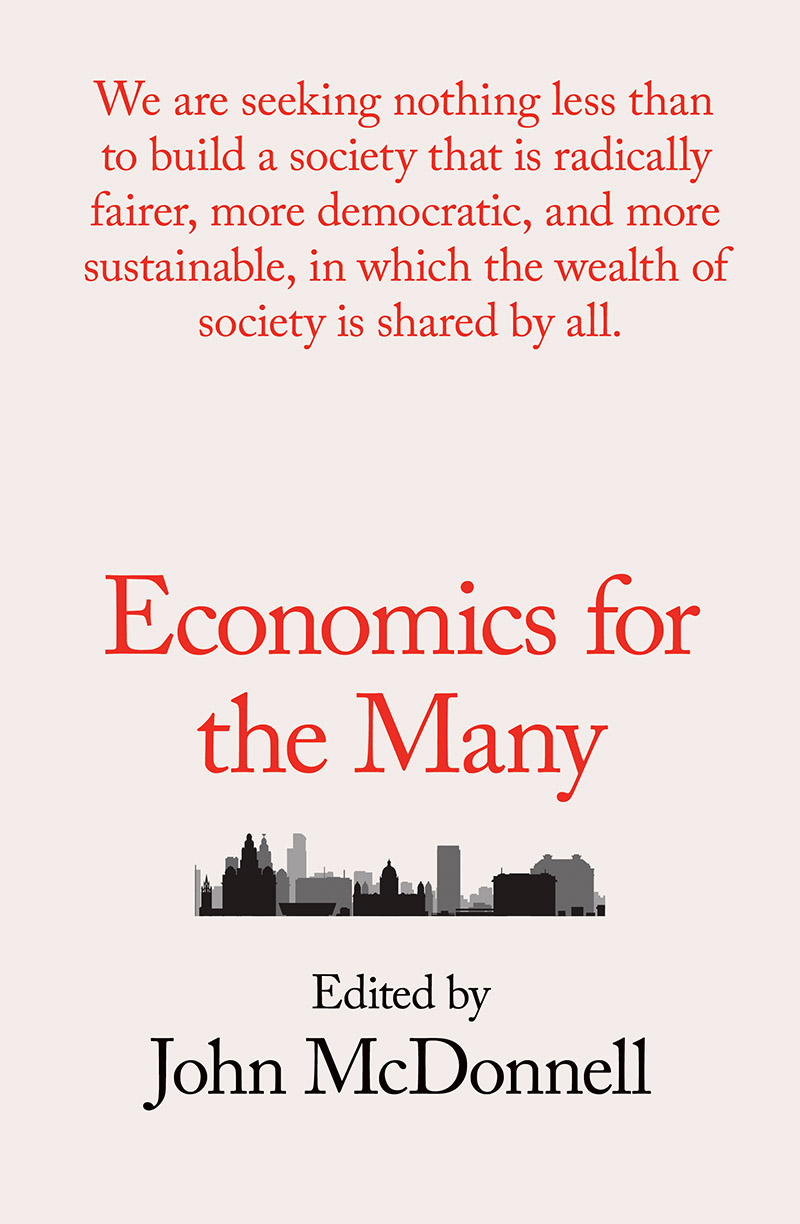 Here’s one question that most certainly needs asking will it be the economy, that shifts things in 2019, stupid? Yes, almost certainly. The collection Economics for the Many edited by John McDonnell is a platform for a comprehensive range of the kind of policies that will not only roll back austerity but in the process lay the foundations for a durable alternative. However any such project should also be about the quality of the lives we lead which is why Melissa Benn’s Life Lessons is such a vital companion volume. Making the case for a ‘national education service’ this book is an explicit critique of the managerialism that has monetised our children’s education. Of course the New Year is also a time to look back over the past twelve months. No one is better equipped to inject some biting satire into remembering the events of 2018 than cartoonist Steve Bell. If Steve’s latest collection Corbyn : The Resurrection, covering the years 2015-18 failed to make it as a stocking-filler my advice is to rush out and buy yourself a copy to be sure of a happier New Year.
Here’s one question that most certainly needs asking will it be the economy, that shifts things in 2019, stupid? Yes, almost certainly. The collection Economics for the Many edited by John McDonnell is a platform for a comprehensive range of the kind of policies that will not only roll back austerity but in the process lay the foundations for a durable alternative. However any such project should also be about the quality of the lives we lead which is why Melissa Benn’s Life Lessons is such a vital companion volume. Making the case for a ‘national education service’ this book is an explicit critique of the managerialism that has monetised our children’s education. Of course the New Year is also a time to look back over the past twelve months. No one is better equipped to inject some biting satire into remembering the events of 2018 than cartoonist Steve Bell. If Steve’s latest collection Corbyn : The Resurrection, covering the years 2015-18 failed to make it as a stocking-filler my advice is to rush out and buy yourself a copy to be sure of a happier New Year.
Of course neither Brexit nor Corbynism exist in a vacuum. Trump and the revival of the Democrats in the mid-terms, especially the breakthrough of new, young, Left candidates, was a 2018 Transatlantic expression of this. Where we go from Here is an account by Bernie Sanders of the two years since Trump’s election and what this means for the future of American politics. By the end of 2019 the next round of Democrats’ Presidential primaries will be fast approaching, making sense of the parallels and differences with our situation in the UK that Bernie helps reveal thus becomes increasingly vital.
Both Trumpism and Brexit have unleashed some ugly forces. The Chris-Howard Woods, Colin Laidley and Maryam Omidi edited collection#Charlottesville details one particular moment when a nakedly white surpremacist politics came up against militant resistance.
 But for an insight into how to build a mass, popular and victorious movement around anti-fascism and racism there is no better book than David Renton’s latest, Never Again, a historiography of Rock against Racism and the Anti-Nazi League, 1976-1982. Roger Eatwell and Matthew Goodwin in their co-authored National Populism describe the resurgent Right from Trump via the German Afd, Liga in Italy, and Marie le Pen in France to the Brexiteer ultras with ‘Tommy Robinson’ in tow as a revolt against Liberal Democracy. A useful schematic for understanding the causes, it however fails to address what a progressive, in particular anti-racist, alternative might look like. A much better, and hugely original, starting point therefore is the one outlined by Will Davies in Nervous States. Utilising a wide range of both analyses and examples Will points to how reason has declined and feeling has come increasingly to take its place. He doesn’t patronise the latter but via an understanding of it reasserts the cause of a rational, radical politics properly equipped for the era in which we live. Brilliant. What kind of political organisation may be up to the task of not only resisting the rise of this populist-racist right but also reclaiming the cause of reason versus reaction? Paolo Gerbaudo’s The Digital Party is a wide-ranging, and international, survey of those parties that have gone furthest to embrace the organisational changes the new modes of communication demand of us all and as such is a compelling read for the future of politics.
But for an insight into how to build a mass, popular and victorious movement around anti-fascism and racism there is no better book than David Renton’s latest, Never Again, a historiography of Rock against Racism and the Anti-Nazi League, 1976-1982. Roger Eatwell and Matthew Goodwin in their co-authored National Populism describe the resurgent Right from Trump via the German Afd, Liga in Italy, and Marie le Pen in France to the Brexiteer ultras with ‘Tommy Robinson’ in tow as a revolt against Liberal Democracy. A useful schematic for understanding the causes, it however fails to address what a progressive, in particular anti-racist, alternative might look like. A much better, and hugely original, starting point therefore is the one outlined by Will Davies in Nervous States. Utilising a wide range of both analyses and examples Will points to how reason has declined and feeling has come increasingly to take its place. He doesn’t patronise the latter but via an understanding of it reasserts the cause of a rational, radical politics properly equipped for the era in which we live. Brilliant. What kind of political organisation may be up to the task of not only resisting the rise of this populist-racist right but also reclaiming the cause of reason versus reaction? Paolo Gerbaudo’s The Digital Party is a wide-ranging, and international, survey of those parties that have gone furthest to embrace the organisational changes the new modes of communication demand of us all and as such is a compelling read for the future of politics.
While some things change, others remain the same. The brutal, dehumanising treatment of the Palestinians by Israel continued in 2018. And this time the shooting by the Israeli army of unarmed protestors who joined Gaza’s Great March of Return offended even many of Israel’s hitherto staunchest supporters. But sadly still nothing seems to change. What a relief therefore to read Nathan Thrall’s The Only Language they Understand an unashamed search for a principled compromise, that won’t satisfy entirely either side but will most.
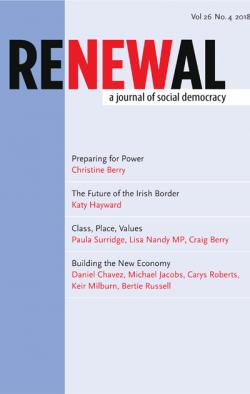 One of the welcome after-effects of Corbynism has to be the revival of a Left intellectual culture. One of the best examples of this is the journal Renewal.The latest edition in particular carries a superb piece by leftwing economist Christine Berry available as a free download ‘ how does a movement prepare for power.’ Compass has always confounded convention by combining the work of a think-tank with the ambition of being a campaign hub. Occasionally wrongfooted by the rise of Corbynism, the latest Compass publication The Causes and Cures of Brexit showcases their thoughtful strengths, not demonising the support for ‘Leave’ but seeking to understand its rationale, something too few even recognise. Also available as a free download, here. But my favourite popular-intellectual initiative of 2018 was the return of the political pamphleteer in the shape of Dan Hind’s excellent ‘New Thinking for the British Economy‘ series .
One of the welcome after-effects of Corbynism has to be the revival of a Left intellectual culture. One of the best examples of this is the journal Renewal.The latest edition in particular carries a superb piece by leftwing economist Christine Berry available as a free download ‘ how does a movement prepare for power.’ Compass has always confounded convention by combining the work of a think-tank with the ambition of being a campaign hub. Occasionally wrongfooted by the rise of Corbynism, the latest Compass publication The Causes and Cures of Brexit showcases their thoughtful strengths, not demonising the support for ‘Leave’ but seeking to understand its rationale, something too few even recognise. Also available as a free download, here. But my favourite popular-intellectual initiative of 2018 was the return of the political pamphleteer in the shape of Dan Hind’s excellent ‘New Thinking for the British Economy‘ series .
In the twentieth century it was 1917 that framed the efforts of those who followed in the footsteps of revolution. John Maclean by Henry Bell details Scotland’s flirtation with revolutionary politics while a special edition of New Formations marks the 2019 centenary of Rosa Luxemburg’s murder with a range of essays detailing her continuing influence and significance. The journal Twentieth Century Communism remains the unrivalled source of insights into 1917’s aftermath worldwide, the latest issue providing a rare focus on African communism. That aftermath is of course not unchanging, the first transformation we might date to the post 1956 New Left, chronicled in a brand new Socialist Register Reader with contributors ranging from Ralph Miliband and Jean-Paul Sartre to Rosana Rossanda and André Gorz.. And then a decade later a further convulsion, 1968, that in 2018 celebrated its 50thanniversary. The Voices of 1968 is an invaluable collection of original material from this most epic of years ranging right across Europe and the USA for its sources. Fiercely critical of the ‘official’ communist movement yet ardent defenders of its own particular interpretation of 1917, and Leninism more widely, John Kelly’s critical, yet not unfriendly, account Contemporary Trotskyism details the particular appeal of this version of a revolutionary politics.
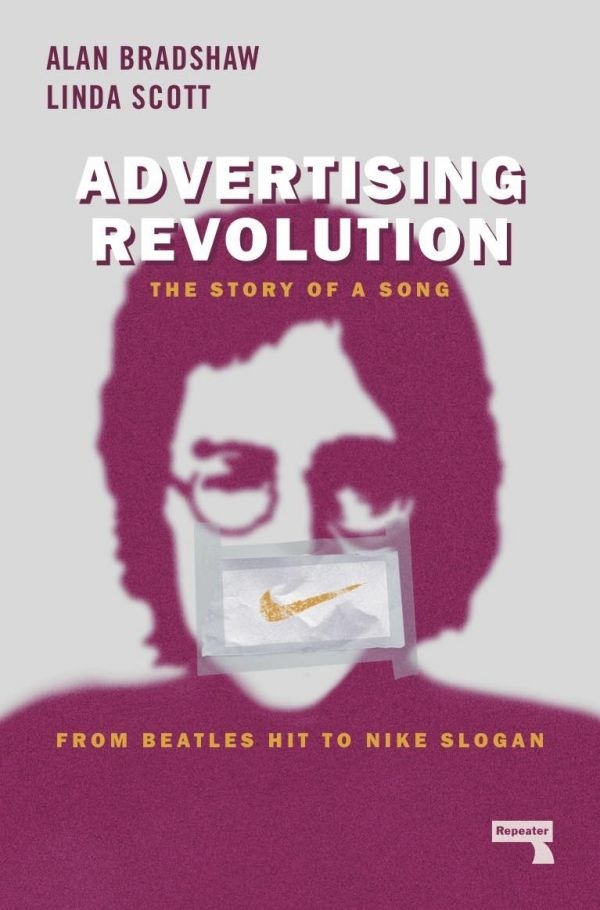 Of course ‘revolution’ in the era of late capitalism has come to mean all manner of things. Alan Bradshaw and Linda Scott’s Advertising Revolution accounts rather brilliantly for the word’s evolution via a Beatles’ hit into a Nike advert and a message even Trump embraces. Taking a different tack Oli Mould in Against Creativity demolishes all manner of claims to ‘liberate’ body, soul and mind via a corporatised version of the power of the creative. Neither critique eliminates the necessity for social change, anything but, both however force us to tackle a bastardised vocabulary as a barrier to making it happen.
Of course ‘revolution’ in the era of late capitalism has come to mean all manner of things. Alan Bradshaw and Linda Scott’s Advertising Revolution accounts rather brilliantly for the word’s evolution via a Beatles’ hit into a Nike advert and a message even Trump embraces. Taking a different tack Oli Mould in Against Creativity demolishes all manner of claims to ‘liberate’ body, soul and mind via a corporatised version of the power of the creative. Neither critique eliminates the necessity for social change, anything but, both however force us to tackle a bastardised vocabulary as a barrier to making it happen.
Versemongering in the cause of social change has a long and rebellious history. Dread, Poetry & Freedom by David Austin provides not simply a biographical account of Linton Kwesi Johnson but a political history of the context of his poetry.
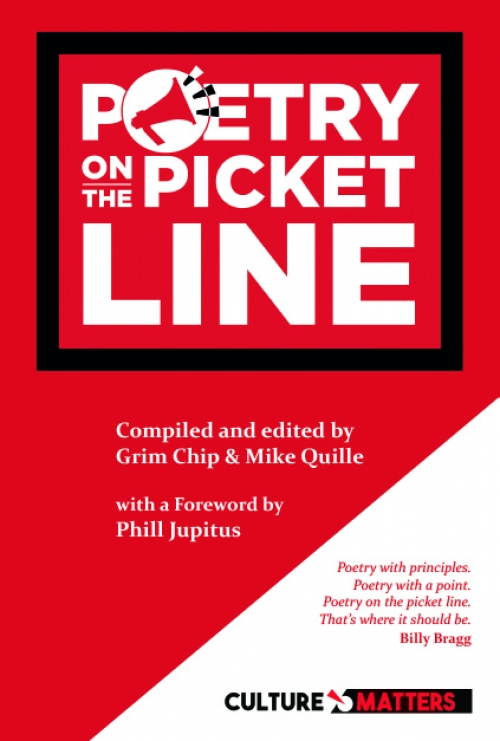 Fusing their poetry with street-level activism the ‘Poetry on the Picketline’ collective stand unashamedly in the tradition of LKJ’s campaigning performances. Their debut collection Poetry on the Picketline showcases what they bring to any protest party. At the core of much of this is an admirably do-it-yourself ‘We are all poets’ philosophy.To help us on our way, iambic pentameters and the like, there’s no finer how-to read than Michael Rosen’s classic What is Poetry?
Fusing their poetry with street-level activism the ‘Poetry on the Picketline’ collective stand unashamedly in the tradition of LKJ’s campaigning performances. Their debut collection Poetry on the Picketline showcases what they bring to any protest party. At the core of much of this is an admirably do-it-yourself ‘We are all poets’ philosophy.To help us on our way, iambic pentameters and the like, there’s no finer how-to read than Michael Rosen’s classic What is Poetry?
Undoubtedly the political novel of 2018 was Jonathan Coe’s Middle England. A funny, if sorry, tale of generational political drifts and divides set in the present and immediate past. An epic, read it before Brexit Day, 29thMarch, ouch!
For children’s reading in 2019 how about going back in time? Michael Rosen has edited a new collection of old socialist fairy stories Workers’ Tales and he’s also adapted an all-time favourite Dickensian tale, Oliver Twist, into a brand new story retold alongside his version of the original, Unexpected Twist. Or for something entirely of the present the third in Michael’s Uncle Gobb series Uncle Gobb and the Plot Plot is bound to be a 2019 favourite. Pushkin Press are past masters at hunting down children’s books from around the world for translation and republication. Two of my favourites from 2018 were Jan Terlouw’s Winter in Wartime a tale of a Dutch teenager in the wartime resistance , and Ele Fountain’s Boy 87a story of childhood, refugees, and survival.
For the practical task of planning the year ahead there’s no better tool than the hugely stylish Verso Radical Diary and Radical Planner the perfect New Year treat for the well-organised person in your life. Sadly, there’s no entry for a 2019 General Election date, not yet...
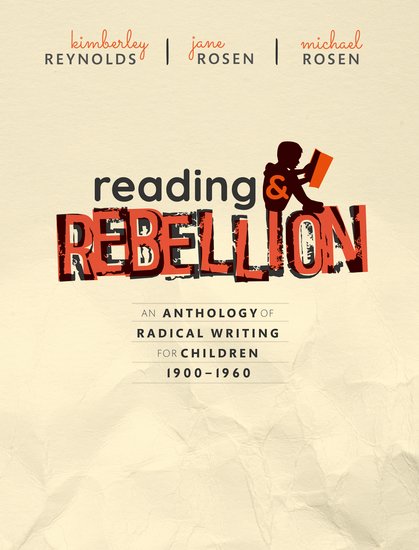 And my book of the New Year? Michael Rosen has collaborated with Kimberley Reynolds and Jane Rosen to produce a fantastically illustrated anthology of radical writing for children Reading & Rebellion. Stretching back to the start of the last century right through to the beginnings of the 1960s revolt this book is an absolute treat of a revelation for children, and grown-ups, of all ages. The perfect read for a New Year and a new generation who more than anyone else will help ensure a future where peace and goodwill is more than a seasonal marketing gimmick but instead at the core of human existence.
And my book of the New Year? Michael Rosen has collaborated with Kimberley Reynolds and Jane Rosen to produce a fantastically illustrated anthology of radical writing for children Reading & Rebellion. Stretching back to the start of the last century right through to the beginnings of the 1960s revolt this book is an absolute treat of a revelation for children, and grown-ups, of all ages. The perfect read for a New Year and a new generation who more than anyone else will help ensure a future where peace and goodwill is more than a seasonal marketing gimmick but instead at the core of human existence.
Note No links in this review are to Amazon, if you can avoid purchasing from this tax-dodging low wage employer please do so.
Mark Perryman is the co-founder of the self-styled sporting outfitters of intellectual distinction, aka Philosophy Football